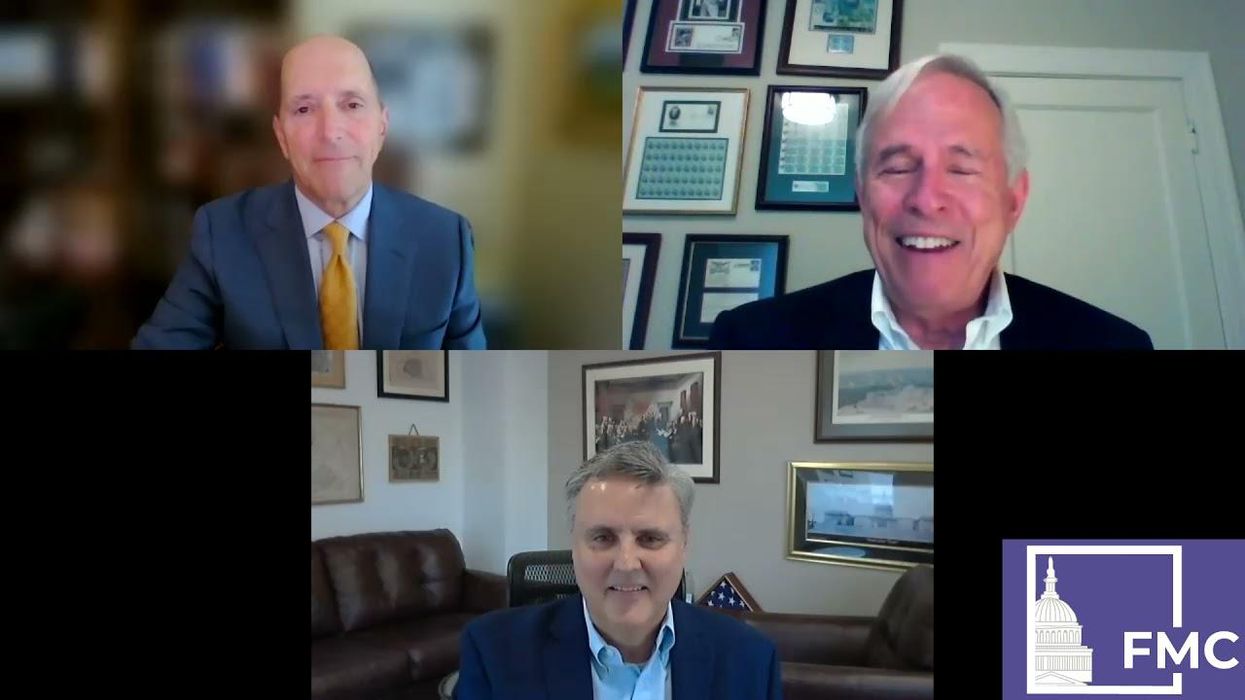From social media to cable news, all the American public sees from our leaders are partisan attacks and hyperbolic rhetoric, but that's not the way it has to be. To prove it, Former Members of Congress (FMC) and the Fulcrum have joined forces to bring you Congress at a Crossroads.
The new monthly video series brings together former members of both parties to discuss the structural issues in today's Congress, as well as the hottest political issues. They won't always agree, but they will always treat each other with respect and civility.
This month, our host, FMC CEO Pete Weichlein sat down with Former Reps. Dave Camp (R-MI) and Bart Gordon (D-TN) to discuss the recent Congressional standoff surrounding a federal debt limit increase, whether we should have a debt limit at all, and what will happen with this same issue when it is revisited in December or January?




















Trump & Hegseth gave Mark Kelly a huge 2028 gift